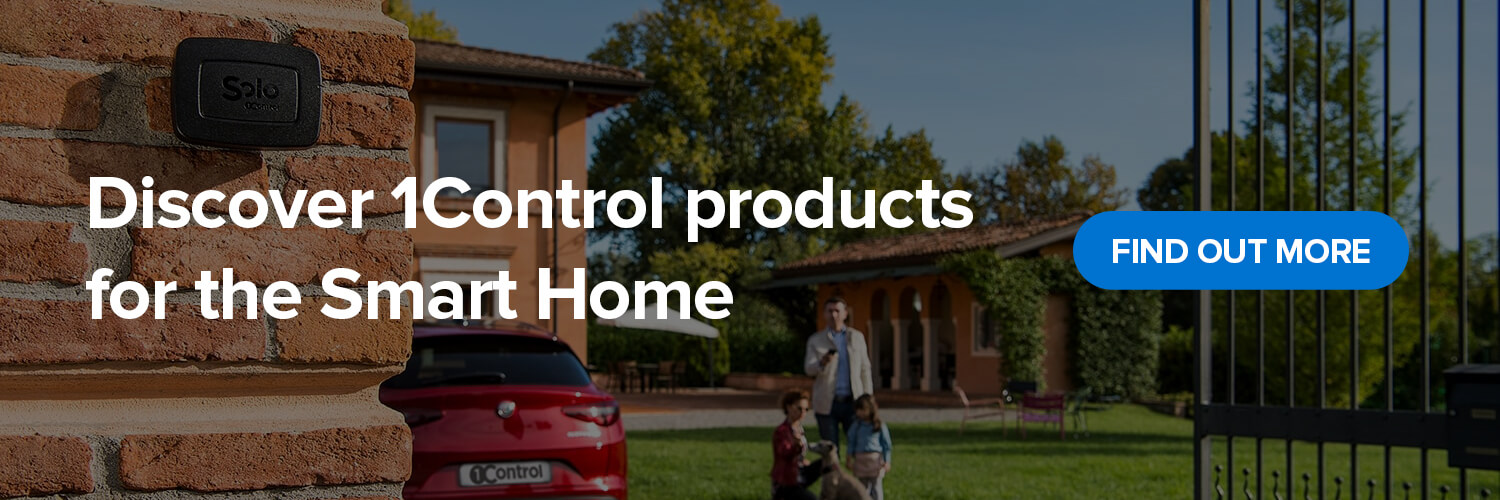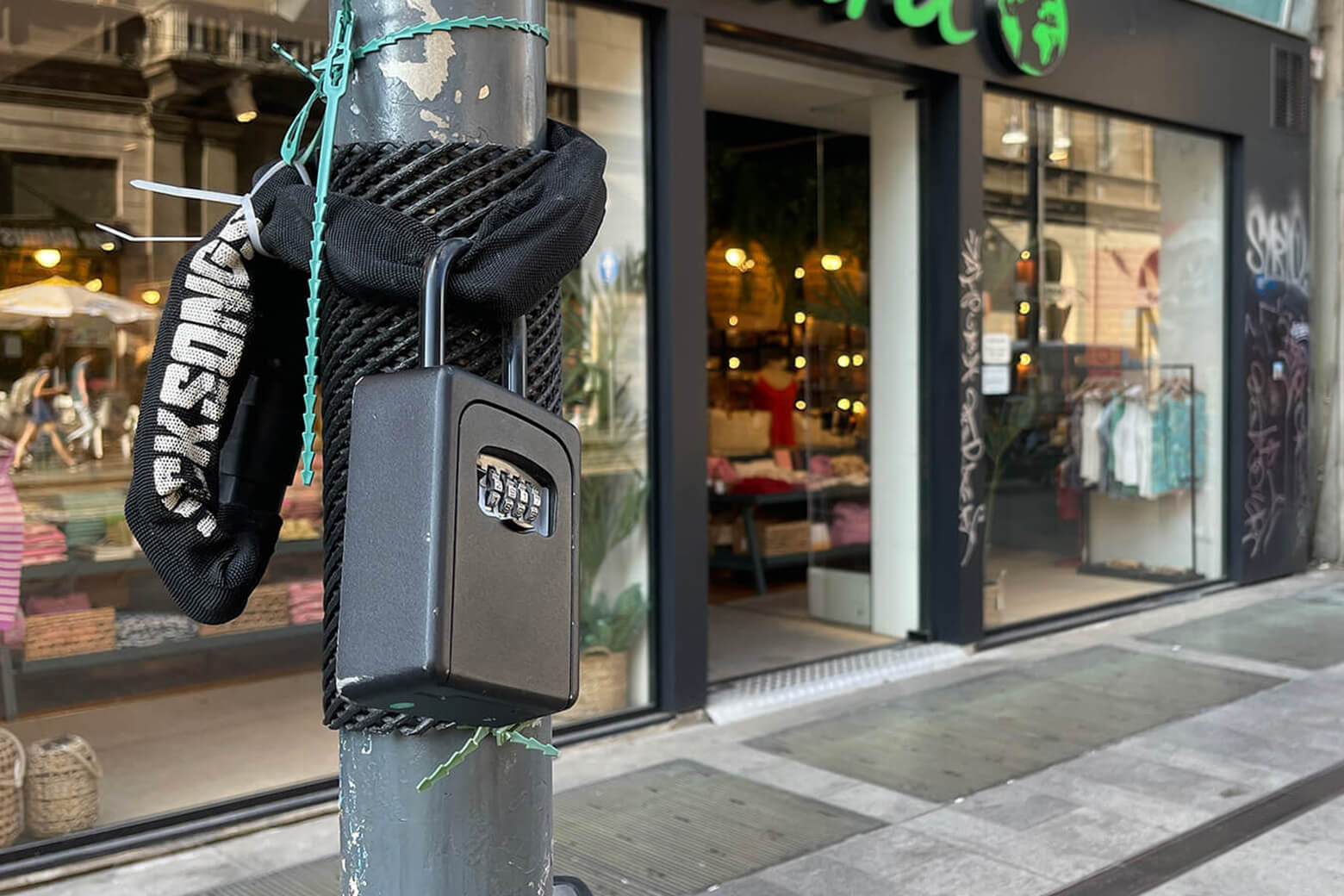In recent years, the short-term rental industry has experienced explosive growth, offering travelers a unique and flexible alternative to traditional hotels.
However, the practice of key delivery via combination locks, while convenient, has generated controversy and challenges in many cities, requiring innovative solutions to ensure safety and convenience.
CONTENT INDEX
- Short-term rentals: the problem of locks for handing over keys
- Lockbox: a problem for security and urban decay
- The regulation of the use of combination locks in short-term rentals
- The solution to the key problem? “Smart” electronic locks
- The 1Control DORY smart lock for short-term rentals
Short-term rentals: the problem of locks for handing over keys
Once upon a time there were love locks, now there are those of tourist rentals. The explosion of AirBnB–style accommodation, which has transformed the real estate landscape of Italian cities (and beyond) in just over ten years, has for some time also boasted a plastic visual representation, before everyone’s eyes.
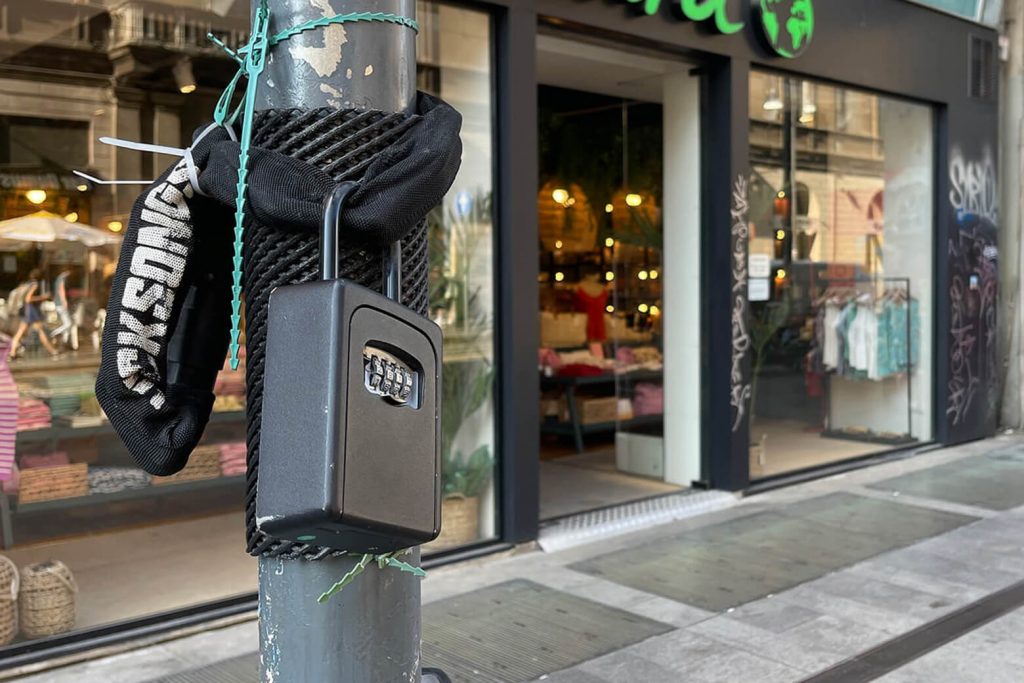
In recent years, with the growing popularity of short-term rentals, there has been a widespread diffusion of combination locks, also known as “lockboxes” or “keyboxes“, in cities around the world. The tourist who rents an apartment is directed by the host to the relevant padlock, a sort of mini safe; once the combination is entered, provided by the owner together with the position of the padlock, it opens, providing the tourist with the keys to the house.
These devices, initially designed to simplify guest check-in and reduce key delivery times, are becoming the subject of discussions and controversies, as reported by several newspapers in recent months
Lockbox: un problema per la sicurezza e per il degrado urbano
Combination locks, although a convenient method of handing over keys to short-term rental guests, are causing growing concern in several cities. One of the main problems highlighted is related to security: the widespread presence of these devices could make it easier for criminals to gain unauthorized access to accommodation.
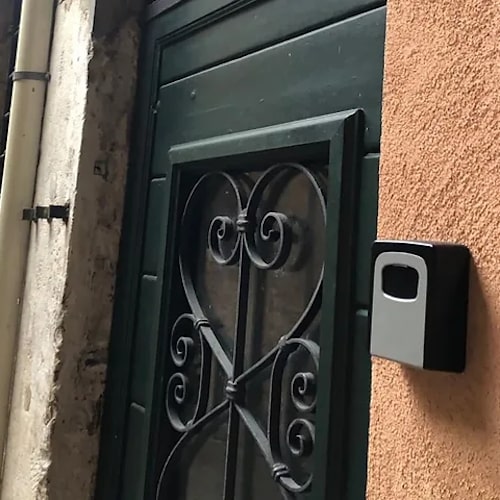
The boxes with the house keys inside are placed next to the pushbutton panels of the building that houses the accommodation, often resulting in inevitable complaints from the condominium owners. “It doesn’t seem right to us that the key to the door is in theory available to anyone, given that any attacker can break the lock and gain entry“, complain some residents of a building in Bologna (Italy).
Furthermore, the residents’ protests also concern the aesthetic aspect and the perception of urban decay caused by the padlocks hanging everywhere. We now see padlocks attached with bike chains to light poles, road signs, basement railings along the sidewalks, handrails, benches and even the historic columns of Florence, a disfigurement of a protected historical-artistic asset.
The regulation of the use of combination locks in short-term rentals
Il problema della proliferazione sconsiderata dei lockbox o keybox, non riguarda soltanto l’Italia e le autorità delle città turistiche di tutto il mondo stanno iniziando a regolamentare l’utilizzo dei lucchetti a combinazione negli affitti brevi. Come riportato in diversi articoli, New York prevede multe salate per chi utilizza questi dispositivi in modo non autorizzato, mentre a Montréal vengono addirittura segati i lucchetti posti su spazi pubblici.
The problem of the reckless proliferation of lockboxes or keyboxes does not only concern Italy and the authorities of tourist cities around the world are starting to regulate the use of combination locks in short-term rentals. As reported in several articles, New York provides heavy fines for those who use these devices in an unauthorized way, while in Montreal padlocks placed on public spaces are even sawn off.
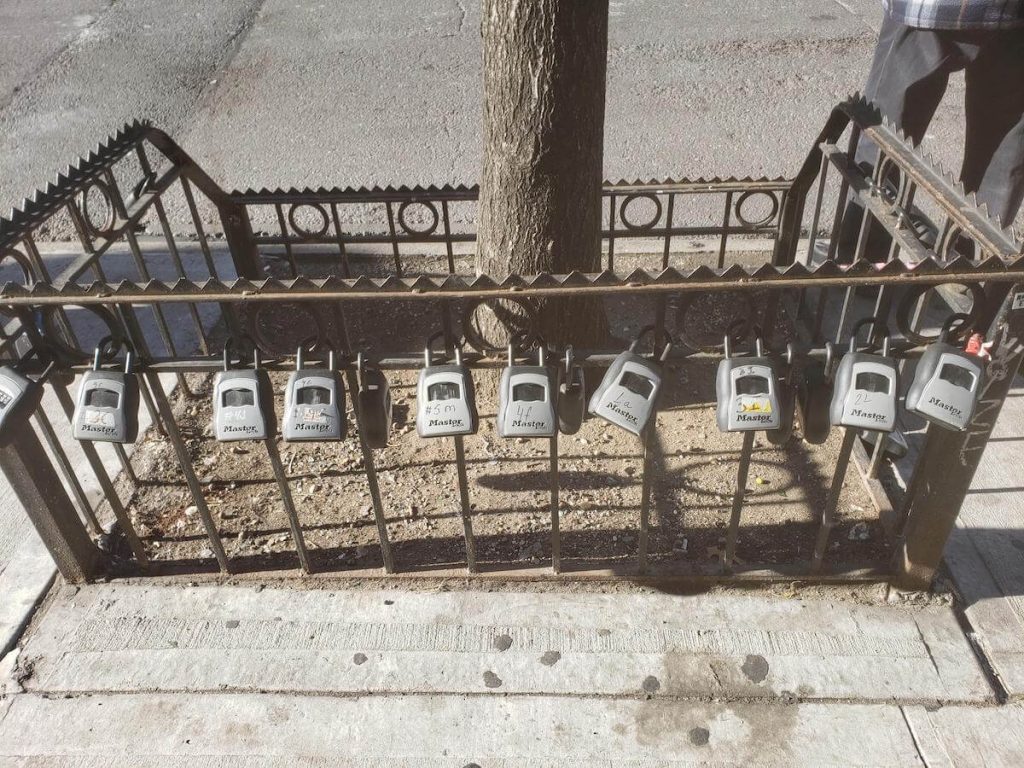
Even in Europe, cities such as Paris, Milan and Venice are discussing specific regulations to limit the use of “lockboxes” and preserve urban decorum and the safety of residential neighborhoods. These initiatives show a growing awareness of the social, aesthetic and security implications linked to the indiscriminate diffusion of combination locks.
The solution to the key problem? Smart electronic locks
In the context of technological evolution in the home security sector, electronic locks have taken on an increasingly central role. These innovative solutions, powered by smart technologies and IoT (Internet of Things) connectivity, offer a series of advantages compared to traditional locks, first of all in the case in question the possibility of granting opening without having to hand over the physical keys.
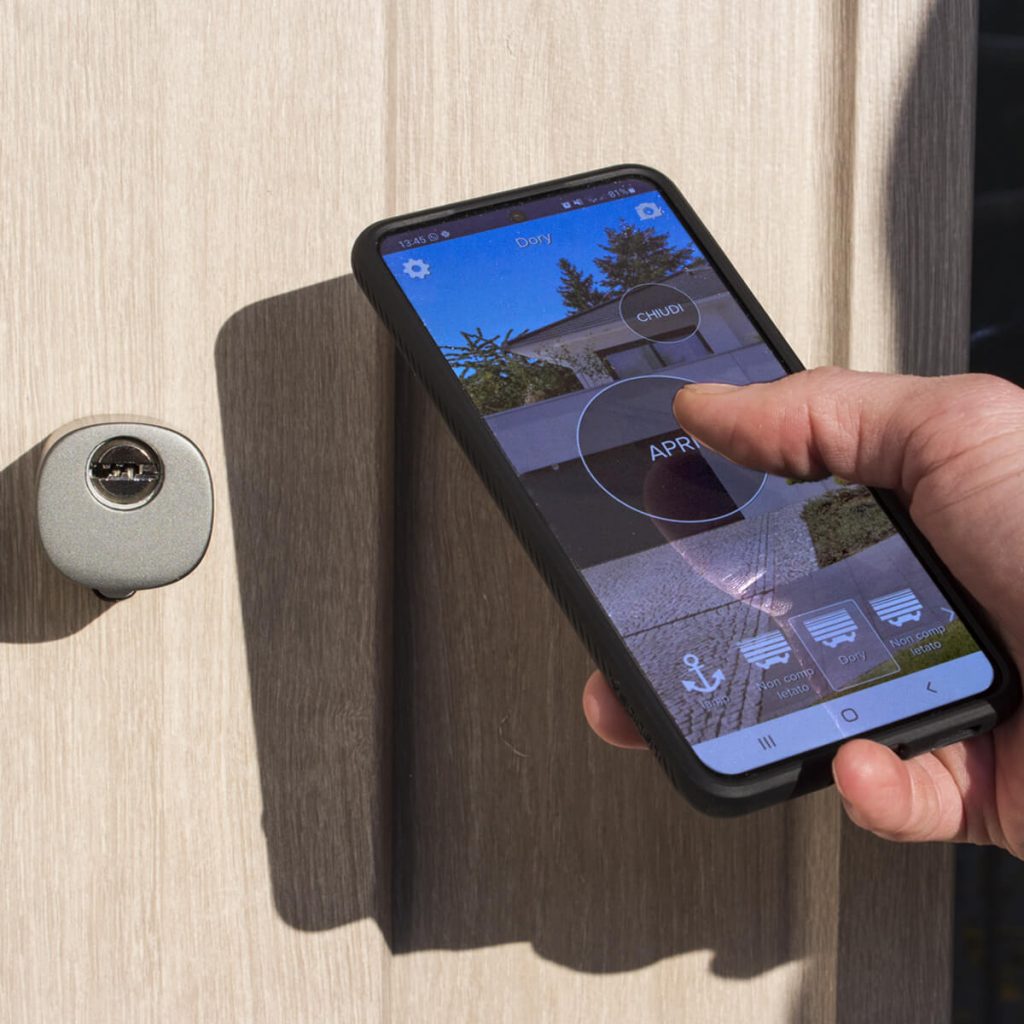
Electronic locks allow users to control access to their homes via mobile devices, such as smartphones or smartwatches, making physical keys unnecessary and significantly simplifying access management. In addition to convenience, electronic locks offer a superior level of security, with advanced encryption systems and real-time access monitoring capabilities.
Furthermore, the adoption of electronic locks eliminates the risk of illegal or unauthorized copies of keys, since access is managed digitally and traceably. Hosts can monitor access in real time and immediately revoke access if necessary, ensuring secure management of access to accommodations.
The 1Control DORY smart lock for short-term rentals
In the context of short-term rentals and the growing problems related to key collection, the 1Control DORY smart lock fits perfectly into the current debate regarding the use of padlocks and physical keys, offering a smart and secure response to hosts’ needs and guests.
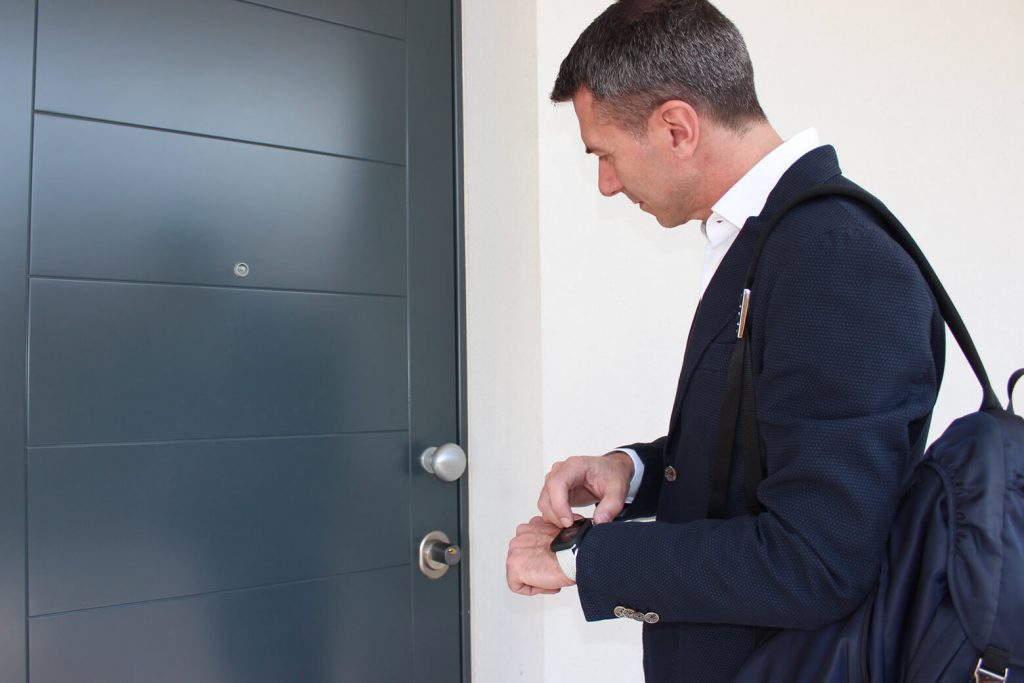
Here are the advantages of the DORY smart lock for short-term rentals:
- Access with Time Limitations: the DORY smart lock allows Hosts to create “timed” sharing with their guests. Opening can be limited to the actual dates of their stay, guaranteeing controlled and personalized access.
- Remote Control for Hosts: through the 1Control app the Host can monitor the history of openings and remotely check if and when the guest has left the accommodation, while with a lockbox it is not possible to verify that he has actually returned the keys unless going there in person.
- Convenience for Guests: Guests can access the accommodation via the dedicated mobile application, without having to physically collect or return the keys, improving the overall experience of the stay.
- Security and Traceability: DORY guarantees a high level of security, eliminating the risk of illegal copies of keys and allowing access traceability in real time. This is particularly important in shared environments, where access management must be precise and controlled.
- Regulatory Compliance: in the current context, which is increasingly moving towards the sanctioning and abolition of the use of “lockbox” / “keybox”, the DORY electronic lock complies with local laws and regulations in force on short-term rentals, offering a compliant and reliable solution that integrates perfectly into the context of tourist cities.
In conclusion, 1Control’s DORY smart lock represents a cutting-edge solution for short-term rental hosts, combining security, convenience, remote control and regulatory compliance in one innovative solution.
By ditching combination locks and embracing smart technology, hosts can ensure a modern, secure hospitality experience for their guests.
